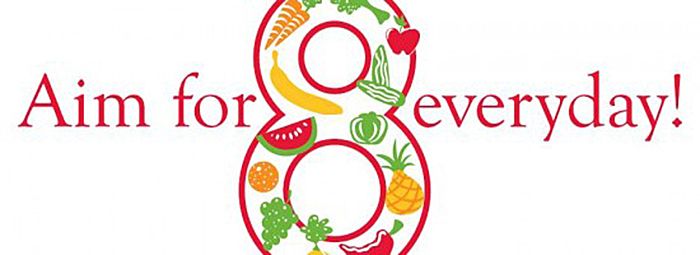A public health campaign to college students five years ago caused a stir last week on social media.
In the local Facebook group, “Chatham Swappers Rant and Rave,” a member posted an image of a Chatham-Kent Public Health Unit advertising campaign depicting a woman’s form, comprised of a collage of fruits and vegetables, engaged in having intercourse with a male vegetable collage. The slogan above read, “Are you getting enough?” Below that was the slogan, “Aim for 8 everyday!”
Still further down was the explanation that the “8” is eight servings of fruits and vegetables. The public health unit’s logo and web address are clearly visible.
Chatham Mazda from Chatham Voice on Vimeo.
Dr. April Rietdyk, director of public health, admitted the image was part of an advertising campaign by the health unit, but it is an old one and had a very specific target audience.
“It is a campaign that was run about five years ago with the college. We had a very targeted audience; a very specific group,” she said. “Believe it or not, there was a lot of research that was done in the U.S. and Europe around that campaign. We didn’t invent it.”
Rietdyk said the images and slogans captured the attention of the college students.
“It was designed to get the students’ attention and to get them to eat more fruits and vegetables,” she said.
She said the ad campaign was certainly not for the general public, especially young children.
“It was for a very, very small portion of the adult population,” Rietdyk said. “When this campaign was done, social media didn’t exist to the extent it does now.”
Rietdyk has no idea how the person who originally posted it to Facebook got the old health unit flyer, and had hoped to explain the situation on that social media platform, but said health unit posts to the issue were pulled down.
The original post was deleted later the same day it went up, but not before attracting dozens of comments from other members of the social media subgroup.
While she wasn’t the manager behind the “Are you getting enough?” campaign, Rietdyk said it delivered the message.
“Feedback from college students was actually very positive,” she said. “I shared it with my young-adult children. They were all in university and college at the time and they thought it was the best kind of advertising for eating more fruits and vegetables that they’d ever seen.”
Rietdyk added the flyer was handed out essentially in one-on-one conversations. Nurses and public health educators met with students and distributed the material.
“It’s not like someone was on the street corner passing them out,” she said. “This just went to college young adults and in very limited numbers.”
Rietdyk figures someone who happened to attend the Thames Campus of St. Clair when the campaign was underway gave the flyer to the person who posted it on Facebook.
“It’s unfortunate that somebody for which it wasn’t intended would take that and kind of run with it,” she said.
Rietdyk said the health unit utilizes a number of edgy and/or graphic campaigns to deliver their message to certain audiences, and if other people see them, it could cause an uproar.
“We service high-risk populations – such as harm reduction and needle exchange programs – all are sensitive topics and in the wrong hands can cause some unintended consequences,” she said.







